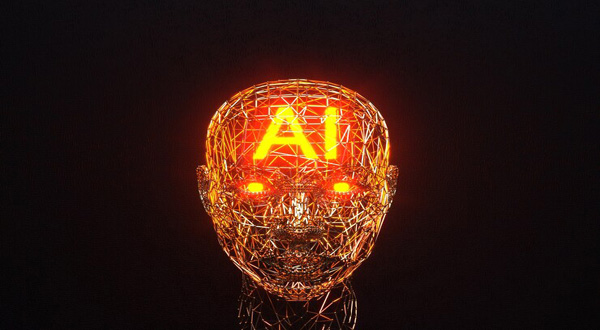The Best Definition of Artificial Intelligence: Exploring Perspectives
- Update Time : Wednesday, February 28, 2024
- 17 Time View

The Best Definition of Artificial Intelligence: Exploring Perspectives
: Artificial Intelligence (AI) is a term we hear often, but what does it really mean? In this article, we’ll delve into the various definitions of AI provided by different experts, shedding light on this fascinating field in a way that’s easy to understand for the general public.
Table of Contents
| Sr | Headings |
| — | ——————————- |
| 1. | Introduction |
| 2. | What is Artificial Intelligence? |
| 3. | Alan Turing’s Perspective |
| 4. | John McCarthy’s View |
| 5. | Marvin Minsky’s Definition |
| 6. | Ray Kurzweil’s Insight |
| 7. | Elon Musk’s Take |
| 8. | Stephen Hawking’s Opinion |
| 9. | Conclusion |
| 10. | FAQs |
- Introduction
Artificial Intelligence, or AI, is a concept that has captured the imagination of people around the world. But what exactly does it mean? Let’s explore various perspectives on the best definition of AI by different experts in the field.
- What is Artificial Intelligence?
Artificial Intelligence refers to the development of computer systems that can perform tasks that typically require human intelligence. These tasks include learning, problem-solving, perception, understanding natural language, and more. Essentially, AI aims to create machines that can mimic cognitive functions typically associated with humans.
- Alan Turing’s Perspective
Alan Turing, a British mathematician, and computer scientist, is considered one of the pioneers of AI. He proposed a test known as the Turing Test, which assesses a machine’s ability to exhibit intelligent behavior indistinguishable from that of a human.
- John McCarthy’s View
John McCarthy, an American computer scientist, coined the term “artificial intelligence” in 1956. He defined AI as “the science and engineering of making intelligent machines,” emphasizing the creation of systems capable of solving problems and exhibiting behavior that would require human intelligence.
- Marvin Minsky’s Definition
arvin Minsky, a cognitive scientist, described AI as the “science of making machines do things that would require intelligence if done by humans.” He focused on the ability of machines to perform tasks that involve reasoning, perception, and learning.
Read More: Unveiling the Marvels of Artificial Intelligence: Exploring the Best Examples
- Ray Kurzweil’s Insight
Ray Kurzweil, a futurist and inventor, views AI as the “art of creating machines that perform functions that require intelligence when performed by people.” He emphasizes the role of AI in augmenting human capabilities and predicts a future where humans and machines work together seamlessly.
- Elon Musk’s Take
Elon Musk, the CEO of Tesla and SpaceX, has expressed concerns about the potential risks associated with AI. He defines AI as “a fundamental risk to the existence of human civilization,” cautioning against the unchecked development of superintelligent AI systems.
- Stephen Hawking’s Opinion
Stephen Hawking, the renowned physicist, warned about the dangers of AI, stating that it “could spell the end of the human race.” He believed that AI has the potential to surpass human intelligence and could pose existential threats if not properly controlled.
- Conclusion
In conclusion, the best definition of Artificial Intelligence encompasses various perspectives, ranging from its potential to enhance human capabilities to the existential risks it may pose. Understanding these diverse viewpoints is crucial as we navigate the future of AI development.
Read More: The Best Stocks of Artificial Intelligence: Investing in the Future
- FAQs
- What are the main goals of Artificial Intelligence?
The main goals of AI include creating machines capable of learning, reasoning, problem-solving, understanding natural language, and perceiving their environment.
- How does Artificial Intelligence impact society?
AI has various impacts on society, including automation of tasks, improved efficiency in industries, advancements in healthcare and education, and ethical considerations regarding privacy and job displacement.
- What are some examples of Artificial Intelligence in everyday life?
Examples of AI in everyday life include virtual assistants like Siri and Alexa, recommendation systems on streaming platforms and e-commerce websites, autonomous vehicles, and facial recognition technology.
- What are the ethical considerations surrounding Artificial Intelligence?
Ethical considerations in AI include concerns about privacy, bias in algorithms, job displacement due to automation, the potential for misuse of AI in surveillance and warfare, and the need for transparency and accountability in AI systems.
- How can we ensure responsible development and deployment of Artificial Intelligence?
Responsible development and deployment of AI require collaboration between technologists, policymakers, ethicists, and society as a whole. This includes implementing robust ethical guidelines, ensuring transparency in AI algorithms, and prioritizing the well-being of humans in AI decision-making processes.
By exploring these FAQs, we can gain a deeper understanding of the complexities surrounding Artificial Intelligence and its implications for society.












